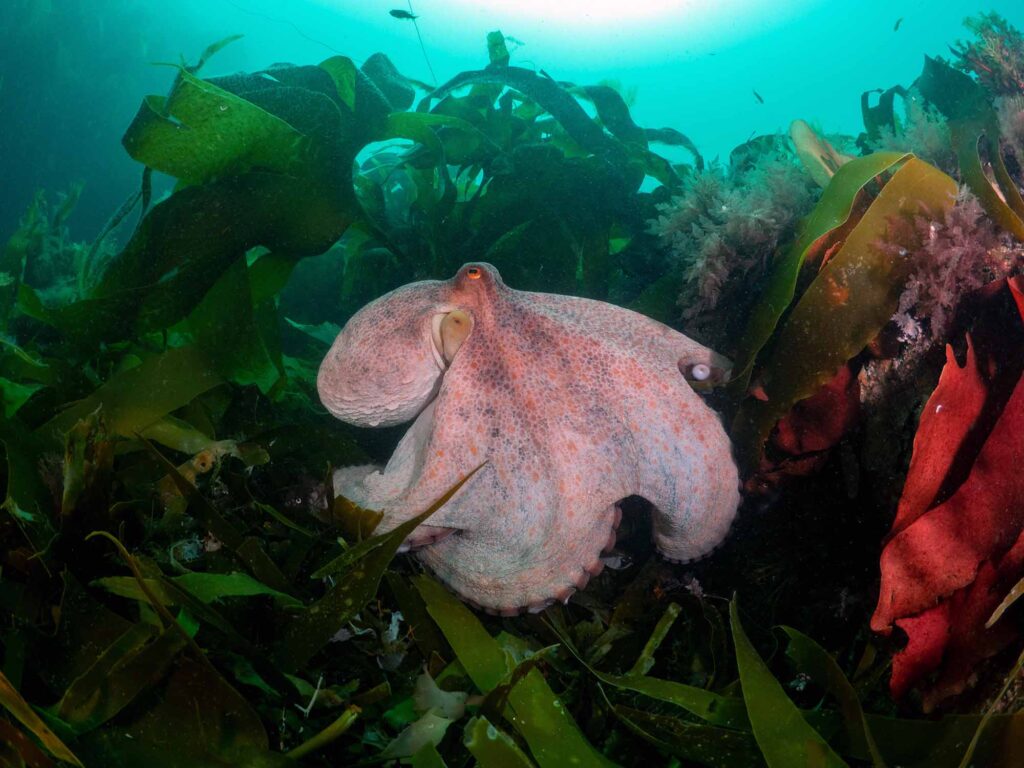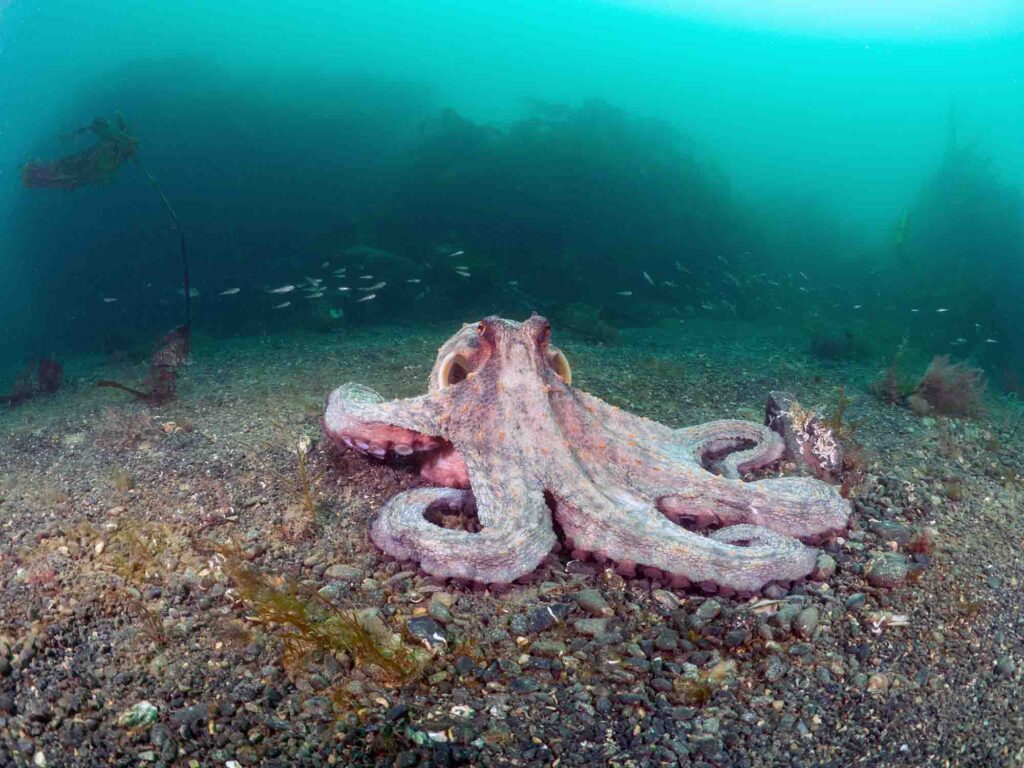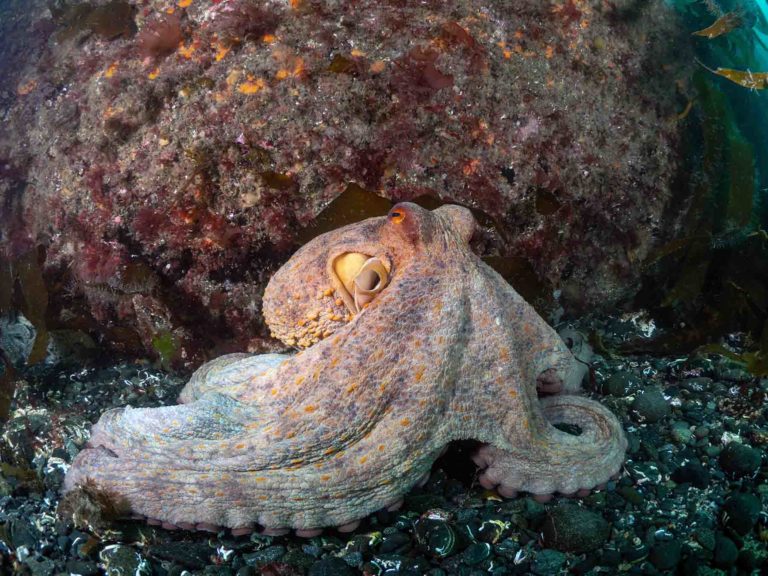Scuba divers, snorkellers and fishers have reported seeing “huge” numbers of octopuses along the Cornish coast in June, in what Cornwall Wildlife Trust (CWT) reports could be a bumper year for such sightings. Its marine conservation officers believe they could be evidence of an octopus population boom on a scale unknown on the South Coast since just after WW2.
There has been a marked increase in reports of common octopuses seen during dives, particularly around the Lizard peninsula. Octopus vulgaris, known for its large eyes, soft bag-like body and tentacles spanning up to 1m, are a rare sight in UK waters, with the trust usually recording no more than a couple of sightings a year.
“I got really excited when I started receiving messages from our Seasearch divers – not only because sightings of these striking animals are few and far between, but because they’d seen several of them on one dive,” reported CWT’s marine conservation officer Matt Slater.

“They are such amazing, alien creatures – one of the most intelligent animals in our oceans – and to witness a population explosion in our local waters would be incredible.”
Cornish fishers have been reporting large numbers of octopuses in lobster pots and cuttlefish traps, with one in Mevagissey reporting catching 150 in one day, compared to his usual catch of one or two a year.
Cephalopod populations can fluctuate dramatically but major octopus booms are uncommon, says the trust. The Marine Biological Association reported an octopus “plague” between Lands End and Sussex in 1899 and another in the summer of 1948.

“We hope this is a sign that octopus populations are healthy in our Cornish waters, but sadly not all of our marine life is thriving,” says Slater.
“By taking action for wildlife and recording your marine sightings with us, we can build up a picture over time and confirm if occurrences like this are a one-off or if octopus populations are steadily on the rise.”
The common octopus is a master of camouflage and an active predator, says the CWT, with a secret weapon in the form of special glands that produce a venom used to incapacitate prey. Its preferred food is crab, so a midden of empty crab-shells can provide a sign for divers that a well-fed octopus is somewhere nearby. The species is included in Avon Wildlife Trust’s Wildlife A-Z Guide.
Cornwall Wildlife Trust, one of 46 such charities in the UK, asks divers and other members of the public to share octopus sightings via its ORKS (Online Recording Kernow & Scilly) app (App Store or Google Play) or online at the Environmental Records Centre for Cornwall & the Isles of Scilly website.
Also on Divernet: Time To Consider Octopus Feelings, Octopuses Dream – But What About?, Why Boss Octopuses Punch Fish, Octopus Selfie Scoops Ocean Art Pool

